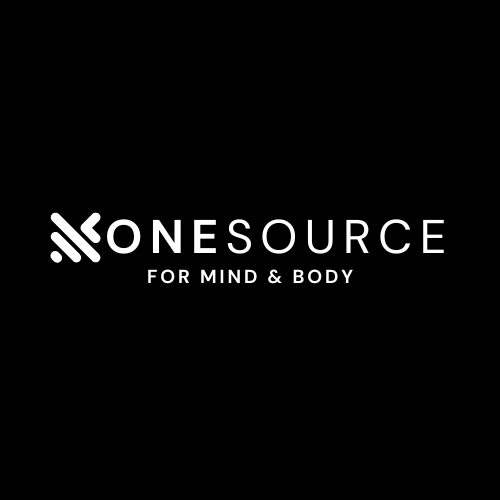A Good Podcast On Sleep
EC Synkowski spent this Episode of The Consistency Project debunking Andrew Huberman, and now I’m torn.
Last week I shared my takeaways from Tim Ferriss’ conversation with Andrew Huberman, Ph.D. A recommended sleep stack, which I subsequently purchased, was part of those takeaways. This week I found an episode of The Consistency Project on sleep. I listened expecting to hear overlap and confirmation of Huberman’s advice. Boy was I wrong. In fact, the episode is mainly dedicated to calling his recommendations into question for lacking scientific basis (something EC Synkowski emphasizes).
I got my stack in the mail Friday. In two nights of use I’ve found it easier to disassociate from my thoughts at bedtime (a benefit Huberman spoke about) and therefore fall asleep quicker, and I’ve experienced deeper sleep. This is purely anecdotal as I don’t wear a sleep tracking device. Perhaps it’s just placebo, something EC Synkowski discusses. I bought a 60 day supply and I’ll at least see that through, but I’m still pretty conflicted based on EC Synkoskiw’s advice that not one of the benefits Huberman cited has been scientifically proven.
It’s worth noting that a main reason for her skepticism is an overall disbelief in supplements, regardless of their purported benefits. Her belief, which I share, is that most everything can be achieved by getting diet and exercise right. Regardless, since these are two experts I regard highly I’m determined to understand how they could differ so greatly and I’ll be looking into the “disconnect” over the next few weeks.
If you need help sleeping, she recommends following these 14 Guidelines for sleep published by The American Academy of Sleep Medicine.
Keep a consistent sleep schedule. Get up at the same time every day, even on weekends or during vacations.
Set a bedtime that is early enough for you to get at least 7 hours of sleep.
Don’t go to bed unless you are sleepy.
If you don’t fall asleep after 20 minutes, get out of bed.
Establish a relaxing bedtime routine.
Use your bed only for sleep and sex.
Make your bedroom quiet and relaxing. Keep the room at a comfortable, cool temperature.
Limit exposure to bright light in the evenings.
Turn off electronic devices at least 30 minutes before bedtime.
Don’t eat a large meal before bedtime. If you are hungry at night, eat a light, healthy snack.
Exercise regularly and maintain a healthy diet.
Avoid consuming caffeine in the late afternoon or evening.
Avoid consuming alcohol before bedtime.
Reduce your fluid intake before bedtime.
It’s a lengthy list, but with the right routines, you can easily knock off most of them. We follow as many as we can and have an informal routine. Every night as bedtime approaches, around 10 o’clock in our house, we start turning off and down the lights. We set the temperature to 67 Fahrenheit (Jen thinks it’s 68). We don’t drink ☑️, and I try diligently to not have caffeine after 12 noon. I also stretch every night for 4 minutes before bed. Quad stretch, calf stretch, hamstring stretch, and elevated pigeon on the bed. I hold each position for 30 seconds (4 muscles, 2 sides, = 4 mins). Stretching really helps get me into bed relaxed.
Which ones do you practice? Which ones do you struggle with? What’s one thing you could change that would improve your sleep habits?
A Good Podcast: Preventing Sarcopenia with EC Synkowski
Tips to slow the process of muscle loss as we age
Listen Here: The Consistency Project: Strategies To Maintain Muscle Mass As We Age
Nothing motivates the gym rat in me like knowing that 7 years ago I started losing muscle. Sarcopenia, the loss of muscle mass as we age, begins at around age 30. Yikes!
In this short 30 minute episode EC Synkowski provides tips and tricks to slow down the process.
Some key takeaways from this episode, On The Fight Against Sarcopenia:
Sarcopenia begins at age 30 at a rate of .3% to .8% loss per year
After age 50 it increases to 1 - 5 % per year
Note: you can put on muscle after age 30 (especially if you’re new to exercise)
Exercise helps to prevent Sarcopenia
EC Synkowski’s #1 rule of exercise - “All exercise is better than none”
Work on resistance training 1 - 2x per week, and cardio (both short duration, i.e. HIIT, and long duration, i.e. swim or cycle) 3 - 4x per week
Get consistent, make the workout challenging, and don’t overcomplicate it worrying about the correct set rep system!
Nutrition to slow Sarcopenia
Focus on the #800gramchallenge (this has been a life changer for me)
Consume a minimum of .7 grams of protein per pound of bodyweight
Use creatine which can aid in the fight against Sarcopenia
I first got introduced to EC Synkowski in the book Built to Move, which introduced me to the 800 gram challenge, and I’ve been following her ever since as a subscriber to her weekly newsletter, where she discusses nutrition and health related topics. If you want a little primer to see what she’ all about, check out this 5 minute Ted Talk she gave five years ago, where she explains her simplistic and effective views on health and nutrition. Enjoy!


